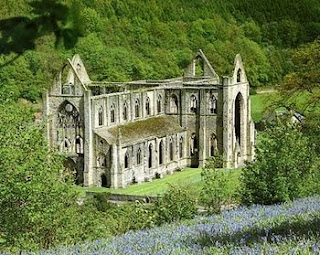I would like to focus on lines 7 through 9, "How many wretched Bards address thy name,/And Hers, the full-orb'd Queen, that shines above./ But I do hear thee,..." (343). The poem starts off talking about the nightingale. There is a reference to the origins of the nightingale in greek mythology . Later on the bird is referred to as "most musical, most melancholy". Considering the idea of melancholy being mentioned, lines 7-9 can perhaps be interpreted differently. Some people may hear a nightingale's songs and experience beautiful imaginings at a such a wonder of nature. However, others like the speaker in Effusion XXIII hear the songs true meaning of sadness. This may be because some individuals have more melancholy experiences than others. They may not look at nature as only a beautiful image of life, but as reality. Nature takes on what we know in our own lives and makes us more perceptive to other emotions. The speaker can possible "hear" the nightingale's true song. It is a song that someone filled with joy would not understand. We discussed in class how Coleridge's existence took on many troubles with his love, Sara, and his opium addiction. Troubles don't just occur over night. Many times they build up over time and become overwhelming, but it is hard to express this feeling freely. Unlike the nightingale, Coleridge couldn't sing his disappointment and sadness for others to take in as their enjoyment. However, just like the nightingale there is a sense of melancholy. A desire for something complete and not troubled. This is why Coleridge (the speaker) can say that he does hear the nightingale. He hears the nightingale's thoughts and feelings. They are not meant to be enjoyed, but only expressive. Unfortunately, not everyone understands this, but instead fail to hear the lesson of the nightingale. This relates to the rest of the poem that goes over the speaker's desires, dreams, that he is perhaps settling against in life.
Tuesday, April 13, 2010
Wednesday, April 7, 2010
From Observations on the River Wye

In Gilpin's description of Tintern-abbey I like that it becomes an analogy for nature.
When he writes, "But if Tinter-abbey be less striking as a distant object it exhibits, on a
nearer view (when the whole together cannot be seen, but the eye settles on some of its
nobler parts) a very inchanting piece of ruin" (p.334). This idea that you cannot just look at
this place from afar and see ruins, but see it up close and appreciate it is often a difficult
task. Present day there is less appreciation for ruins or historical sites and the same goes for nature.
Gilpin points out that nature takes work to appreciate. Nature, just like Tintern abbey, needs to be given
the time and careful observation to be understood and appreciated for what it is. We have seen this repeatedly in different
works from Lyrical Ballads. To understand nature, you must put yourself into it and see the details. Tintern abbey is not just some old
structure. It is in fact still a work of art. Nature has made it its own because Tintern abbey stands in a natural state of ruins. Now people
come to see it and hopefully look at the details of every stone and arch. Also, it is a part of nature because it is so isolated.
If people want to experience its wonder then they must go visit. They must take the time to learn. It isn't like every other piece of architecture that people
pass by daily. It has become appreciated for the beauty and history it still holds in its isolation. Just as Gilpin describes there are trees and land surrounding the Abbey. It is constantly a beautiful discovery to visitors who do wish to experience nature at its best.
Subscribe to:
Comments (Atom)